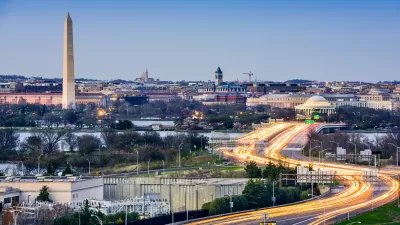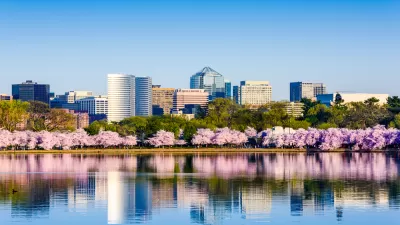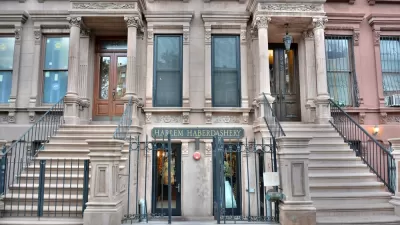The program gives households a rent subsidy that can be used flexibly over time, making it a valuable tool for workers with fluctuating incomes.

In a report for the Urban Institute and The Lab @ DC, Josh Leopold, Mychal Cohen, Maria Alva, Nat Mammo, and Sam Quinney evaluate the impact of the city's flexible rent subsidy program on housing stability in the District. "Flexible rent subsidies are one tool local governments are exploring to help families that are currently housed but remain one shock away from homelessness. A flexible subsidy allows families to decide how much of the subsidy to spend each month, up to their total rent. This flexibility can be particularly valuable for workers whose earnings fluctuate, such as seasonal workers and those in the 'gig' economy, who have been especially hard hit this past year."
D.C.'s program, DC Flex, "gives families $7,200 a year for rent to use whenever they need" and "was designed to fill a niche for families who do not need the case management offered in typical homeless assistance programs but who do need a subsidy to reliably afford rent and avoid homelessness."
"A review of the DC Flex account data showed 60 percent of program participants spent the full $7,200 over the course of the year, and others preserved funds for their second year in the program. This result suggests participants use the program’s flexibility to suit their specific financial needs." According to the study's authors, "[t]his is the moment for trying and testing flexible subsidies more broadly, and the DC Flex program is a promising example of how these programs can be structured."
FULL STORY: DC’s Flexible Rent Subsidy Program Shows Promising Early Results

Maui's Vacation Rental Debate Turns Ugly
Verbal attacks, misinformation campaigns and fistfights plague a high-stakes debate to convert thousands of vacation rentals into long-term housing.

Planetizen Federal Action Tracker
A weekly monitor of how Trump’s orders and actions are impacting planners and planning in America.

Chicago’s Ghost Rails
Just beneath the surface of the modern city lie the remnants of its expansive early 20th-century streetcar system.

Bend, Oregon Zoning Reforms Prioritize Small-Scale Housing
The city altered its zoning code to allow multi-family housing and eliminated parking mandates citywide.

Amtrak Cutting Jobs, Funding to High-Speed Rail
The agency plans to cut 10 percent of its workforce and has confirmed it will not fund new high-speed rail projects.

LA Denies Basic Services to Unhoused Residents
The city has repeatedly failed to respond to requests for trash pickup at encampment sites, and eliminated a program that provided mobile showers and toilets.
Urban Design for Planners 1: Software Tools
This six-course series explores essential urban design concepts using open source software and equips planners with the tools they need to participate fully in the urban design process.
Planning for Universal Design
Learn the tools for implementing Universal Design in planning regulations.
planning NEXT
Appalachian Highlands Housing Partners
Mpact (founded as Rail~Volution)
City of Camden Redevelopment Agency
City of Astoria
City of Portland
City of Laramie





























